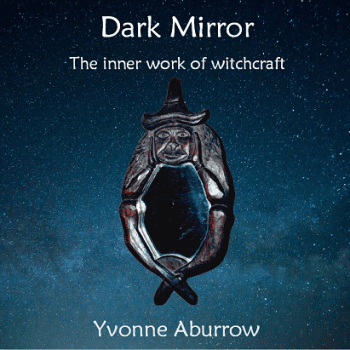[A content warning for this post: I’m going to be discussing issues related to consent, including some oblique references to rape and sexual assault. There are no graphic images or text, but I encourage anyone for whom these are sensitive topics to exercise caution and self-care. —♥]
Hello, beautiful creatures.
I’ve been kicking a few different ideas for posts around in the past few days, but none of what I’ve come up with has really seemed appropriate. I mean, I could write about something controversial or incendiary, something guaranteed to get people all riled up. After all, doing so can get needful conversations started in the broader p-word community… and goodness knows, there are conversations we need to be having.
At the same time, having those conversations is hard. It’s painful, it can get ugly, and it’s exactly zero fun… and that’s all without talking about the comments section here. I’m not one for avoiding touchy subjects, but it’s also nice to get through a week without having someone get cranky because I hurt their feelings or contradicted their deeply-held religious beliefs.
Instead, let’s talk about a topic guaranteed to bring us all together in a rousing chorus of accord, a medley of shared good feelings and peaceful discourse. Something that can’t possibly bring up any feelings of insecurity, fear, or ill will.
Let’s talk about consent.
Defining “Consent” and Other Seemingly-Obvious Pitfalls
…and a chill swept over the room.
Consent’s a funny thing, isn’t it? It shouldn’t be a scary, conversation-killing subject all knotted up in confusion and accusations of social-justice-warriorship1. Consent should be as basic a concept as adding two and two to get four, as comforting as a favorite shirt, and at least as conversationally stimulating as an episode of Game of Drones. And yet, we find that people get into raging arguments about consent, and express all manner of confusion about what it even means, much less how to negotiate it.
When I’m stuck on a word, I find it helps to go back to the definition and work forward from there. I’m a fan of the Oxford English Dictionary for this purpose, but since it requires a paid membership or institutional access to use, I’m going to fall back on the work of the delightful linguists and revolutionary leaders over at Merriam-Webster. In their definition of “consent,” they start with the verb form, where it primarily means “to give assent or approval.” In other words, to consent is to say “yes” to something. When used as a noun, they primarily define it as “compliance in or approval of what is done or proposed by another,” which is another way of describing the state of having said “yes” to something.
So, in all cases, consent means assenting, agreeing, saying “yes.” Why on earth would this ever be a controversial subject?
I suspect the answer lies in the issue of power: who has it, who can exercise it, and how we feel about it.
Consent’s a funny thing. It has the potential to start or end relationships, to create or ruin lives, to rupture or repair communities. It’s a magical word, consent. It has power. Consent is power, and human beings have a deeply ambivalent relationship to power. We crave it, usually for ourselves, and we fear it, usually in others. We love the freedom and safety it can provide, and we dread the responsibility and accountability it incurs. Consent is power, and power is complicated.
Unfortunately, there’s also power in the inverse of consent, in its absence. That’s what rape is, after all: nonconsensual sexual aggression to assert power over someone. One of the most heinous things about sexual assault is that the perpetrator intentionally disregards and violates the will of the victim, stripping them of power at the most intimate level imaginable. It’s a violation of another’s agency, for the express purpose of the perpetrator getting what they want from the victim. It’s the reduction of another person to an object, a commodity to be used. It’s an attitude which should have no place in any kind of civilized society, much less in a community which claims to foster spiritual growth and personal empowerment.
Why I Took a Sabbatical, and What I Found When I Came Back
At the risk of being boringly personal for a moment, I want to talk for a moment about morals and ethics.
Some years ago, during a fairly unpleasant period in my life, I took a leave of absence from magic, witchcraft, and Paganism: a sabbatical, if you will. There were a lot of reasons why, most of which are pretty irrelevant here… but one reason, both significant then and relevant now, was my growing dissatisfaction with what I perceived as a set of unresolved moral and ethical dilemmas in the interlinked communities of Pagans, polytheists, and magical practitioners of which I was a part. The dominant discourse in those communities promulgated what I saw as some incredibly ill-informed, unhealthy, and actively dangerous ideas about power. I saw power deemed to be a moral value in itself, absent any accountability around how it was exercised, and a lack of honesty about who held power, to what end.
All of which is little different from mainstream culture, really. Rather than engage with these ideas about power, I decided to absent myself from the argument. (In my defense, I was in no condition to slay dragons at the time; I was hardly in a state where a sleep-deprived newt would’ve found me a worrisome opponent.)
Once I had worked through my personal issues, I decided to reengage with the p-word community and see what the lay of the land was. To my surprise, some things had actually changed in the discourse around power, and some of the issues I had found so repellent were actually beginning to be discussed, both openly and in private. To my horror, it had taken the revelation of some genuinely awful abuses and betrayals of trust to bring those changes into being. (I’m not going into the specifics of any of those cases here, because they’re not the focus of this piece, but I’m quite sure that a quick web search will prove illuminating.)
And, of course, to my utter lack of surprise, some things had completely failed to change. There were still predators in the community, and people making excuses for their predation. There were still people treating other people as fonts of power to be drained and cast aside: “batteries for their betters,” as I once heard it phrased. There were still people believing they were entitled to other people’s time, energy, attention, and bodies.

The Problem Is People (Because Of Course It Is)
Some of that is just human nature. Human beings have an unfortunate tendency to believe that we should get to have a thing we want—that we are entitled to the thing we want—merely because we want it. This is an understandable state in newborn children, whose wants tend to revolve around basic survival needs. It’s even comprehensible in toddlers, whose brains simply aren’t developed enough to understand that other people are just as real as they are, and have needs just as much as they do. When children leave the toddler stage, however, we start expecting them to understand that their wants and needs don’t automatically trump other people’s. By the time they’ve reached what we call “adulthood,” there’s a kind of general expectation that they’ll have grasped this concept, well enough at least to get through a day without stealing other people’s lunches from the work fridge.
Unfortunately, based on personal experience, this isn’t a well-founded assumption. The reality is that, while most people are decent enough, there’s a statistically non-trivial number of people who are willing to do things they would themselves define as “morally and ethically wrong” if there were little to no chance of being caught. Worse, there’s a non-trivial number of people who would do things most of us would define as “morally and ethically wrong”—such as, say, sexually assaulting another person—because they don’t see those actions as having a moral and ethical value.
Moral values are not universal, nor are their ethical applications. While there are many things about “civilization” which merit criticism, one of its great benefits (when done well) is that it allows people with varying sets of moral and ethical frameworks to exist more or less in peace, mostly by demanding that everyone adhere to the same basic set of externally-imposed rules (“laws”), which may or may not have any particular grounding in morals or ethics. The point is, we all get to live in relative harmony because I agree not to punch you in the face and steal your phone, and you agree not to kick me in the stomach and steal my wallet. You respect my right to hold power over myself, I respect your right to hold power over yourself, and we call that civilization.
All of that relies on consent: on respecting other people’s autonomy and power, and owning our own. If consent isn’t the basis of our interactions with other people, individually or corporately, we have no right to claim to be mature human beings, much less to claim membership in any sort of civilized society. By the same token, if those of us who work with gods, spirits, powers, and our fellow practitioners aren’t basing our communities and our praxis in consent, we have no claim to any sort of spiritual advancement or wisdom. We’re merely overgrown toddlers who haven’t learned that other people, other beings—human or other, corporeal or not, living or dead or something else—don’t exist for our convenience, to sate our desires. They have their own agency, just as we do, and understanding that agency should be the core of any interaction, magical or mundane.
I have further thoughts along these lines, of course. Consent is a huge topic, one which we can fruitfully unpack for many, many posts… but that’s enough for one day, I think.
Until next time, dear ones, take good care of yourselves. ♥
- I’m a multiclassed social justice warrior/mage, myself… or a social justice fighter/magic-user, if you’re playing by 1e rules.
















